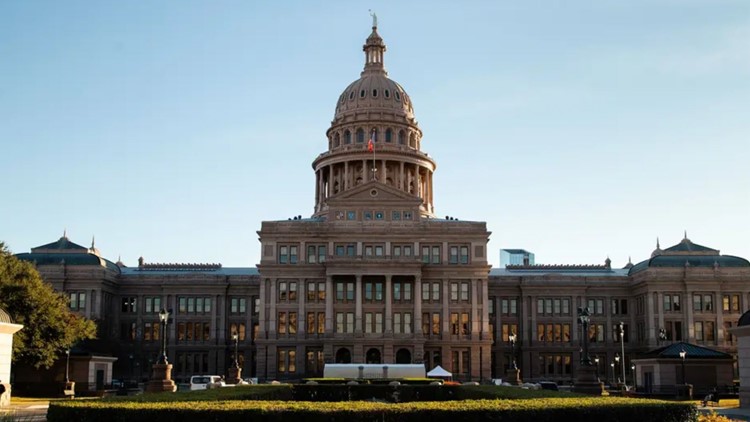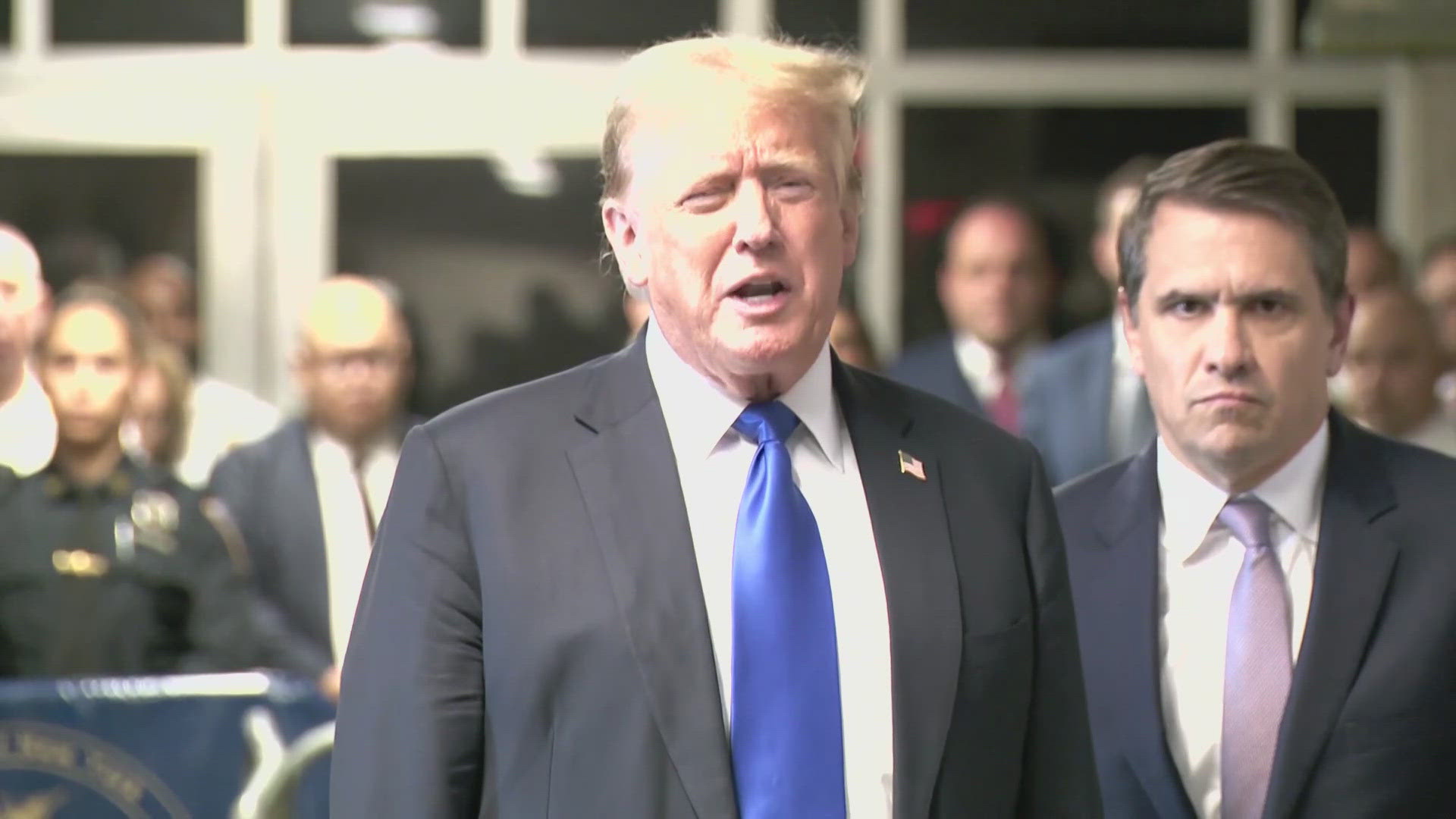School vouchers were already one of the most contentious issues in Texas politics.
The proposal has long pitted the Senate against the House, where Democrats and rural Republicans have formed a firewall against it.
But throw in Attorney General Ken Paxton’s impeachment trial and acquittal — and the explosive intraparty conflict it has caused in the Capitol — and state lawmakers are bracing for an even more epic showdown over the issue this fall.
Gov. Greg Abbott has not announced the date yet, but he has long indicated that he would call lawmakers back to Austin after Paxton’s trial to revisit his signature push to let parents use taxpayers dollars to take their kids out of public school.
Getting legislative approval was never going to be easy. The chambers spent months gridlocked on the issue during the regular session. Any kind of deal would likely require delicate negotiations and cooperation between the chambers — something that has always been difficult with Patrick and House Speaker Dade Phelan. Earlier this year, Patrick and Phelan fought bitterly and publicly for months over how to cut property taxes — a goal that had near-unanimous support on both sides of the Capitol. “School choice” has faced opposition from a majority in the House for years, complicating negotiations.
The fights over Paxton have only widened the divide between the two chambers.
After the House voted overwhelmingly to impeach Paxton in May, the Senate decisively acquitted him on all 16 articles of impeachment it considered in the trial. Patrick, effectively the judge, ended the trial by blasting the House for how it handled the impeachment, saying it was rushed and calling for an audit of the House’s spending. Phelan shot back, accusing Patrick of “cheating the people of Texas of justice” and “placing his contempt for the people’s House on full display.”
Amid the inter-chamber war, school choice advocates are still hopeful. Mandy Drogin, the top advocate on the issue at the Texas Public Policy Foundation, said Monday she was “incredibly optimistic.”
“I think that while this has been a wild and crazy summer with everything that’s happened, I think this is a chance for Texans to unite for good,” Drogin said, “and we’ll see that here in the special session.”
Abbott signaled Monday that he is pressing forward. It was announced he would be a special guest for a “school choice” tele-town hall Tuesday, and he tweeted that “NOW is the time to deliver” on the issue.
“We look forward to working with the Texas Legislature during the next special session to build on the parent empowerment successes of the regular legislative session and ensure all Texas families have the opportunity to choose the best education path for their children,” Abbott spokesperson Renae Eze said in a statement.
The precise timing of the special session remains a mystery. Patrick and lawmakers have publicly discussed October as the anticipated month of the special session, but Abbott has not been even that specific.
After the grueling trial, Republican senators — who acted as jurors — said they were looking forward to the special session.
“I am ready to get back to the important work of representing you, my constituents, in the upcoming special session,” Sen. Angela Paxton — Ken Paxton’s wife — wrote in a letter to constituents. “I’m looking forward to defending critical parental rights, protections, and educational opportunities for all Texas children.”
Yet all eyes will be on the House. Republican members there were less talkative Monday, and Phelan’s office declined to comment for this story.
About a month before the trial, Phelan said in an interview that a special House committee was having “some of the most productive conversations that we’ve had in years” regarding education, but school choice was no guarantee. That committee issued a report outlining a possible path forward for vouchers, suggesting a scaled-back approach compared to the legislation debated during the regular session.
Phelan said he was not personally lobbying members one way or another, a continuation of his hands-off approach to the governor’s top issue of 2023.
But now, Phelan’s intraparty critics believe he is more cornered than ever to deliver on the issue. Many of the same Republicans who were angered by the House’s impeachment of Paxton are also supportive of school choice.
“If Dade Phelan is smart, he is going to pass complete school choice,” said Luke Macias, an anti-Phelan Republican strategist. If he doesn’t, Macias added, “all he’s doing is putting his members in an even more difficult position going into March.”
Even the Texas GOP, no fan of Phelan, is holding back as it waits to see what comes from the special session. Late last month, before the Paxton trial started, the state party's resolutions committee declined to advance a county party resolution to censure Phelan over school choice and other issues, finding it premature with the special session on the horizon.
One big question that remains is what has changed, if anything, in the House’s attitude toward school choice since May. Drogin suggested Abbott’s determination has been on display more and more, and lawmakers now have a budget signed into law that could fund education savings accounts, which would let parents withdraw state funds to pay for private school expenses.
Abbott is expected to continue tying ESAs with education proposals that enjoy broader support, like teacher pay raises.
Democrats say little has changed, citing test votes on the issue during the regular session. In April, the chamber voted 86 to 52 in favor of banning the use of state dollars on voucher-like programs.
“I don’t have to look at the impeachment to determine the viability of vouchers,” said state Rep. Trey Martinez Fischer of San Antonio, who chairs the House Democratic Caucus. “There’s clearly not an appetite for vouchers in the House.”
Depending on the timing of the special session — and any subsequent ones — the attitude of the House toward school vouchers could see slight changes compared to the end of the regular legislative session. At least two anti-voucher Republicans — Reps. John Raney of Bryan and Four Price of Amarillo — have since announced they will not be running for reelection, making them less likely to be swayed by political pressure. And there will be a Nov. 7 special election to fill a vacant seat where one leading GOP candidate is promising to vote for Abbott’s agenda.
“If we elect the right person, right time, on Nov. 7, then we can have someone down there fighting for us for school choice,” the candidate, Brent Money, said during a forum last month.
For now, though, Republicans in both chambers are just grateful to have moved past the impeachment drama.
“We did our constitutional duty, it’s behind us, we’re excited, in my case, to be back home in North Texas and get back to the people’s businesses,” state Sen. Tan Parker, R-Flower Mound, said in a radio interview Monday. “We have so many challenges before us that we need to address” — including, Parker added, “tackling education in this special session around the corner.”
The Texas Tribune is a nonprofit, nonpartisan media organization that informs Texans — and engages with them — about public policy, politics, government and statewide issues.
>MORE TEXAS POLITICS COVERAGE:



